Greece is one of the world’s most popular tourist destinations, for good reason! While that’s made some places less affordable, most of the country remains accessible to people of all budgets. These local tips for traveling Greece on a budget will help you save money, while still enjoying the country to the fullest!
When to Go
Best time to visit the mainland for lower prices, ideal weather, and less crowds: April and May (but prices spike for Orthodox Easter), June, September, and October. This is the best time for outdoor activities.
Best time to visit the islands for lower prices, ideal weather, and less crowds: September (June is also beautiful on the islands, but the sea may be cold for swimming in some areas like the Aegean).
Cheapest time to visit Greece: November to March, though prices spike around the Christmas and New Years holidays. While you wouldn’t have a beach vacation and it would be cold and possibly rainy, the upside to winter in Greece is having major sights to yourself and experiencing Greece like a local!
Most expensive, crowded, and hottest time to visit Greece: July and August, especially around the August 15 Assumption of Mary holiday, when domestic tourism peaks and prices skyrocket.
Check out When to Visit Greece for a deep dive on the pros and cons of each season.

A local Athenian, beat from the August heat!
Where to Go
Mainland Greece is generally pretty affordable, whereas the biggest discrepancy in prices vs. what the average local can afford is on the islands. Sadly, many Greeks have been priced out of some of Greece’s most beautiful destinations, like Santorini and Mykonos. Fortunately for those of us looking to get the most bang for the buck, there are 227 inhabited Greek islands to choose from. Islands that don’t receive massive amounts of international tourists, which are the majority, are more affordable. You can get a good idea of local prices in advance by looking at the average cost of accommodation options online.
When choosing an island, check how much it costs to get there. There are plenty of islands within a few hours’ ferry ride from Athens, which will generally be cheaper than taking a plane. Also consider the size of the island. Small islands are easier to get around on foot so you don’t have to rent a vehicle or take many taxis. Halki and Lipsi in the Dodecanese island chain are two of my favorite small, walkable islands. Lastly, look into the island’s tourism infrastructure. Many islands have buses in the summer that go from the main town to popular beaches every few hours, limiting the need to rent a vehicle or take taxis.
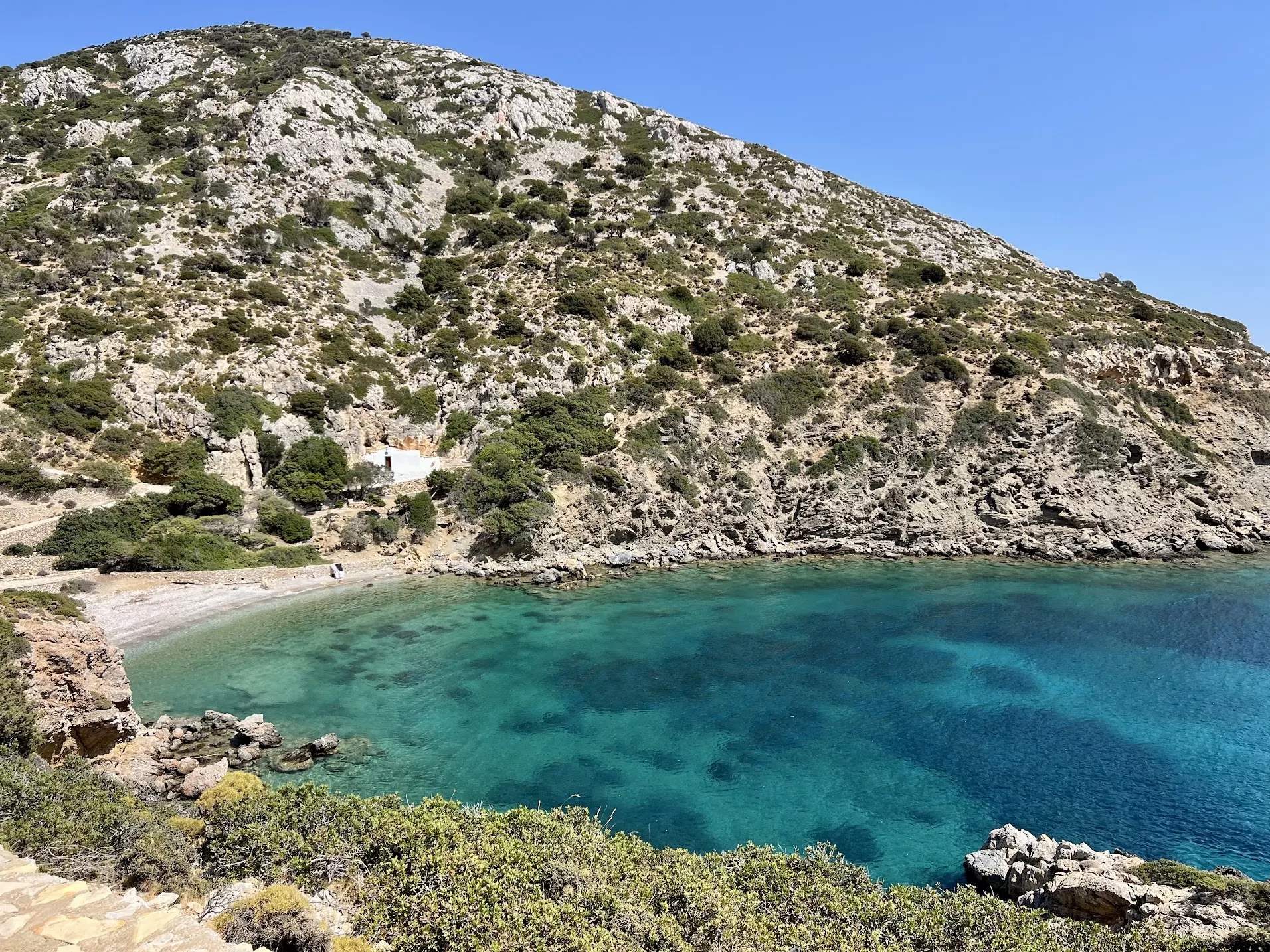
There are so many gorgeous beaches you can walk or hike to from the main town on little Lipsi.
Transportation
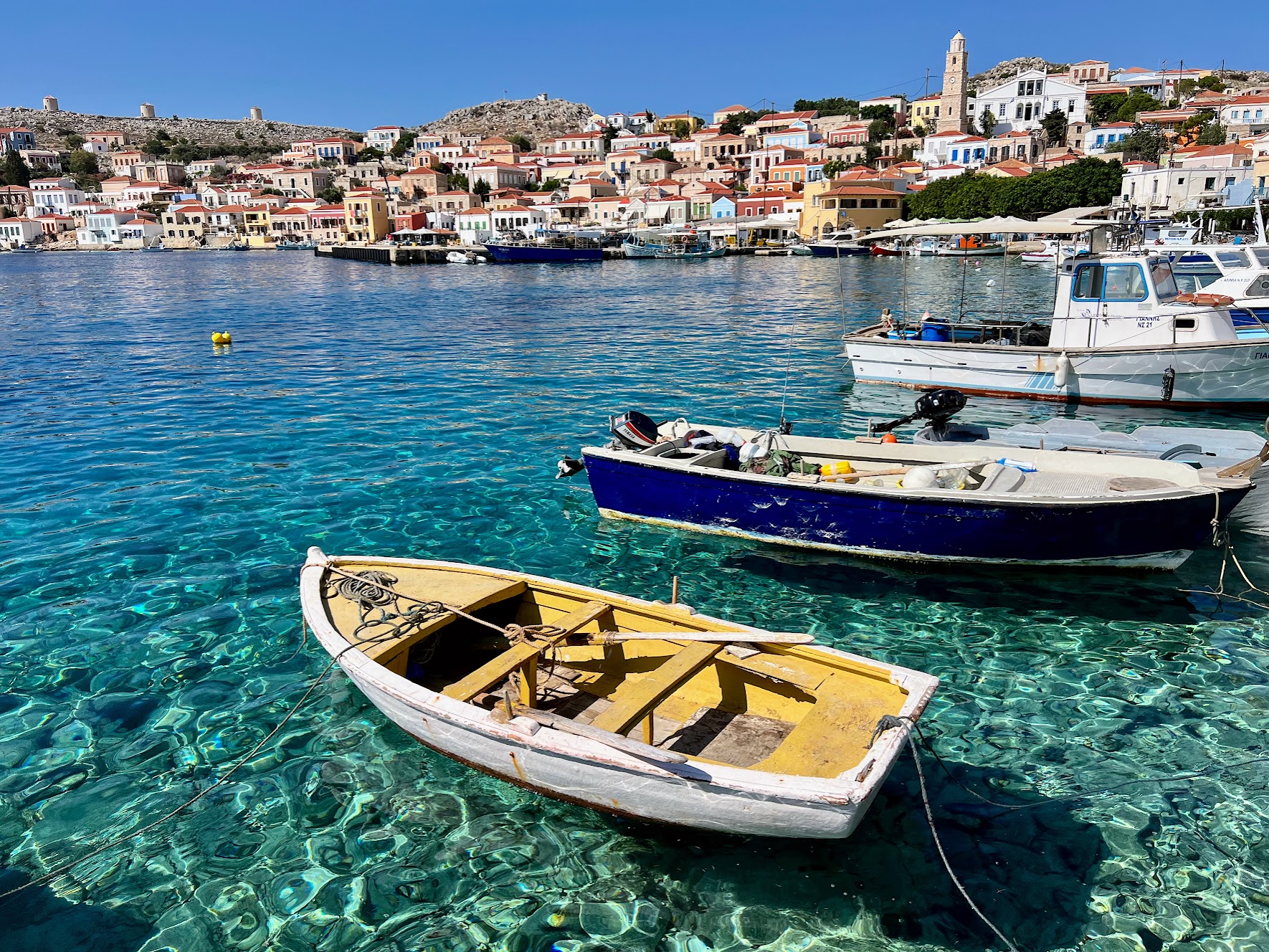
It's such a thrill arriving by ferry to Halki's beautiful harbor.
Food & Drink
Greece is a great country for cheap eats. Whether you want to limit your spending or just pick something quick up for breakfast, lunch, or dessert, Greek bakeries are your friend. Every morning for breakfast I grab a coffee (freddo cappuccino, please!) from a kiosk and a koulouri from the bakery for a few euros total. I love going to secluded beaches and hiking, so I’ll also get a couple of fresh savory and sweet pastries from the bakery, things like cheese pies or spanakopita, for about €10. Pastries don’t need to be refrigerated, so make great food to pack for the day that’s individually sized and easy to eat on the go.
If you want something a bit healthier for lunch, you can go to the supermarket and buy stuff to make a sandwich back at home. You can pick up water and other snacks to pack for the day while you’re there. In coastal towns, the supermarkets are always packed with people picking up food and drinks before heading to the beach. If there’s a local farmers market, that’s where I’ll buy fruit and nuts for the week.
For dinner, there’s nothing cheaper and more filling than souvlaki and gyros at about €3 a piece! Tavernas serve traditional food and are a lot cheaper than more formal restaurants, with options for vegetarians and vegans as well. At night, you’ll see young people outside with beers or a bottle of wine bought from the store. Do as the locals do! I love relaxing somewhere scenic with a drink at sunset.
Archeological Sites & Museums
State-owned Greek archeological sites and museums are free to all on March 6, April 18, May 18, the last weekend of every September, October 28, and every first Sunday of the month between November 1 and March 31. If you miss that first Sunday of the month but still visit between November 1 to March 31, you’ll pay half price on tickets. State-owned Greek archeological sites and museums also offer free admission or discounts year-round to students, young people, the elderly, people with disabilities and their escort, and others, so check if you’re eligible and carry any relevant IDs or documentation for verification.

The Archeological Museum is my favorite museum in Rhodes' historical center.
Beaches
I would burn alive without a beach umbrella in Greece during the summer. If you don’t want to rent a sunbed or umbrella every day (which can cost €100 on Mykonos!) or plan to visit beaches that don’t have facilities, buy a beach umbrella for about €10 from the store. It usually has a strap to carry over your shoulder, so isn’t too burdensome to carry around. I always buy one when I get to an island, then gift it to someone before flying home. A more eco-friendly option that’s cheaper long-term and provides shade for more people is to buy a beach tent that folds up and fits into your luggage so you can use it forever.
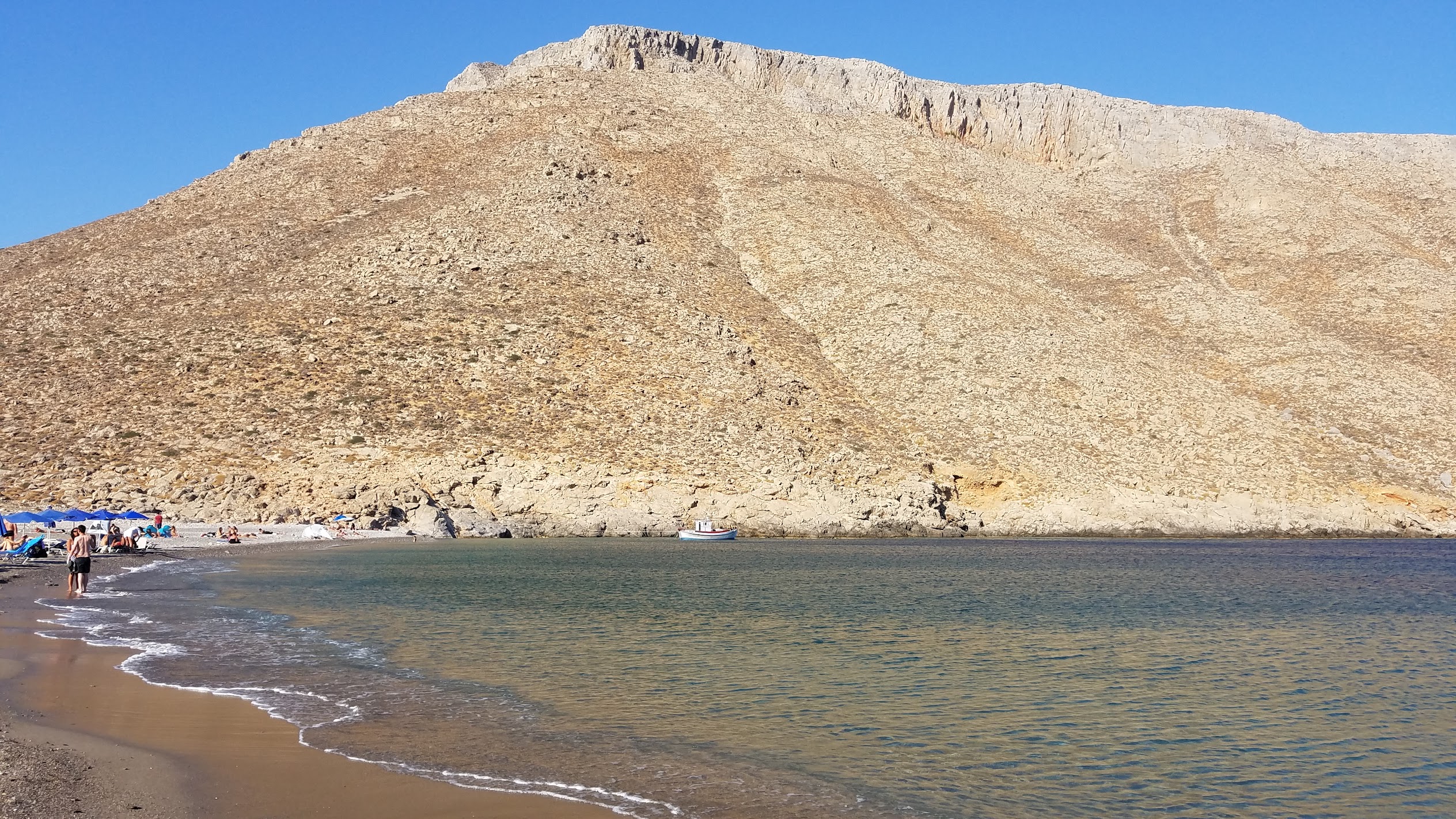
Astypalea, a butterfly-shaped island in the Aegean!

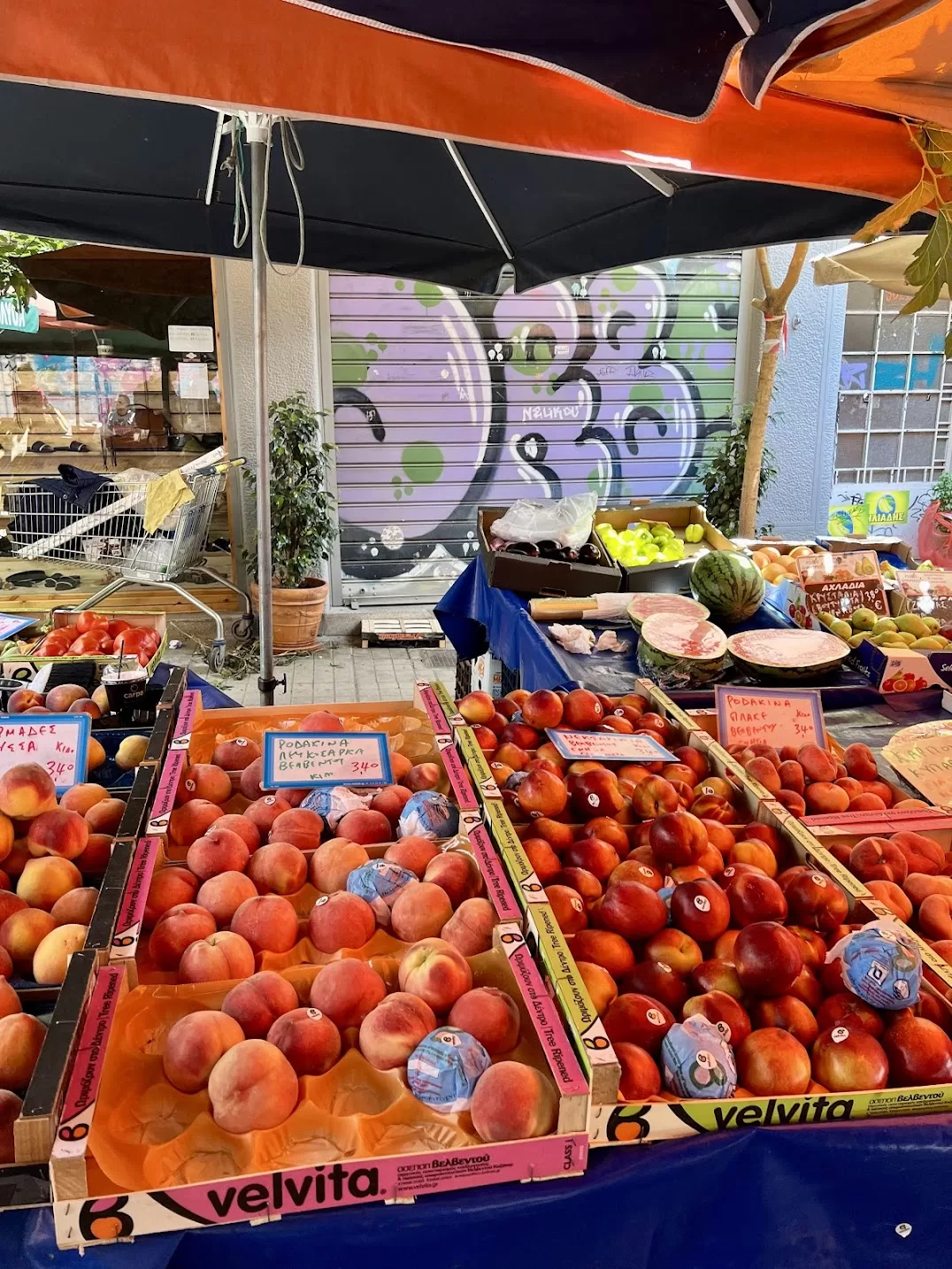



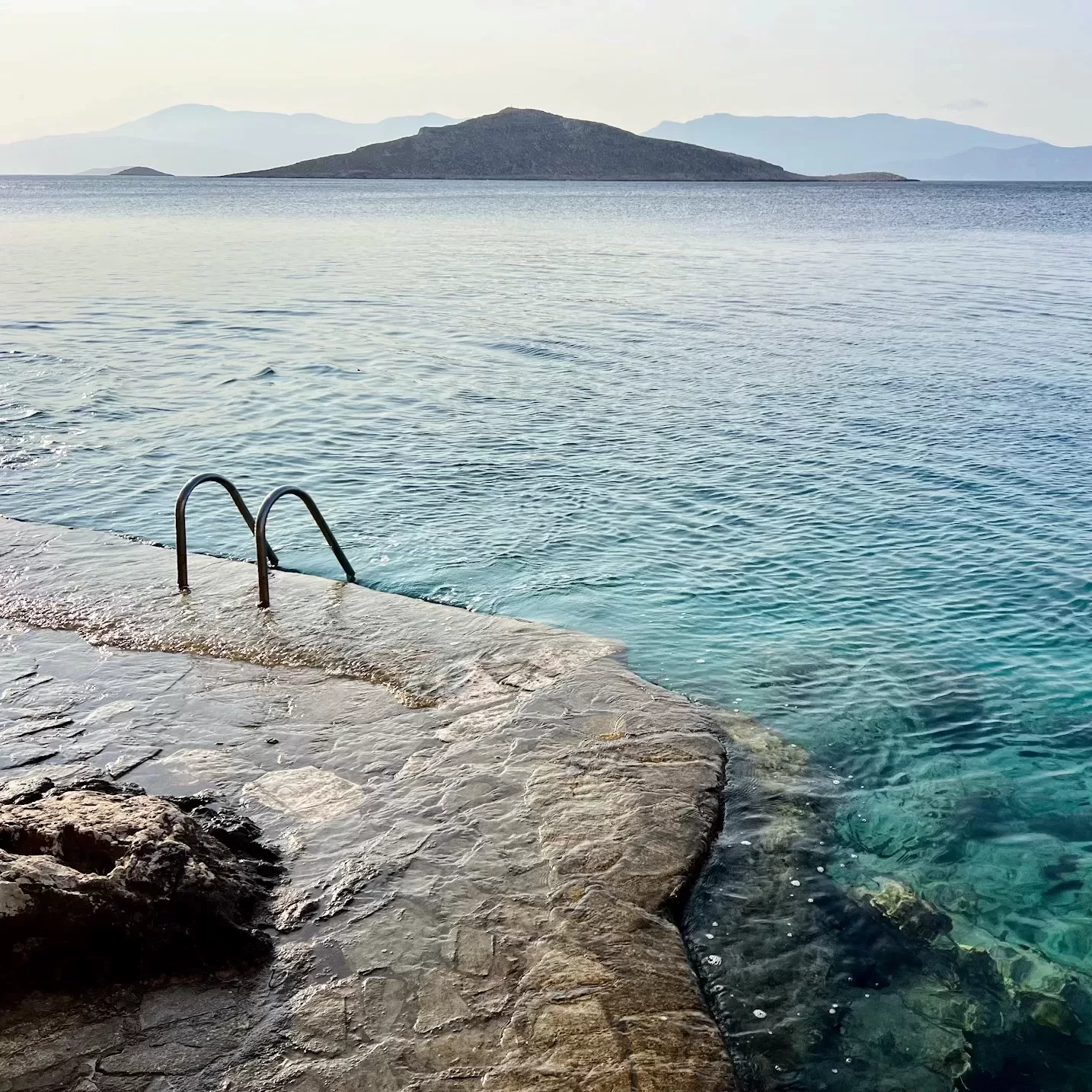
Love love love !!!!!!!!! Great info for on a budget!!! Thank you Kris!